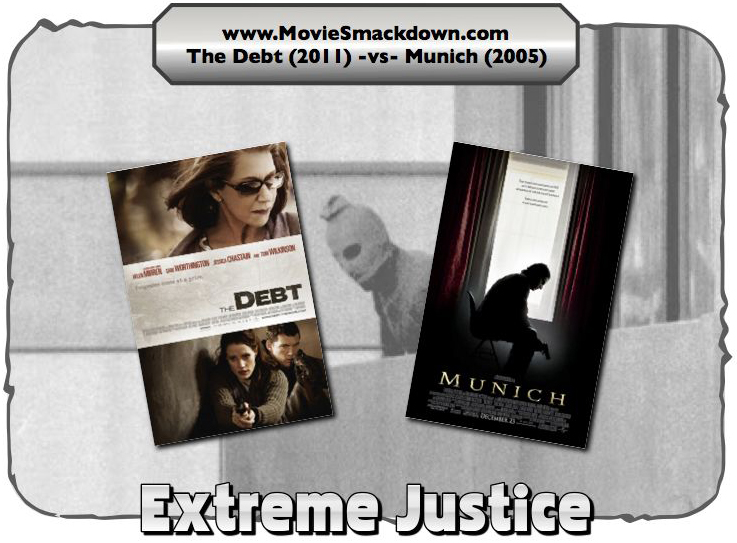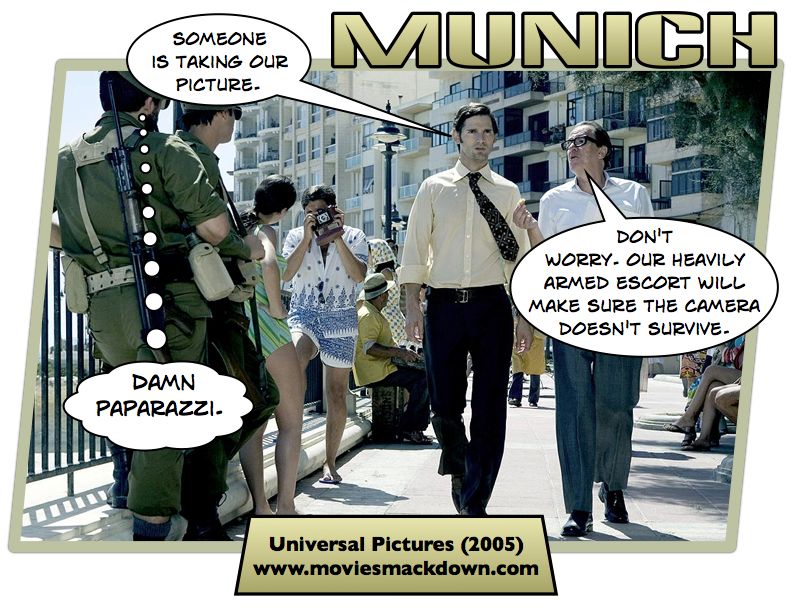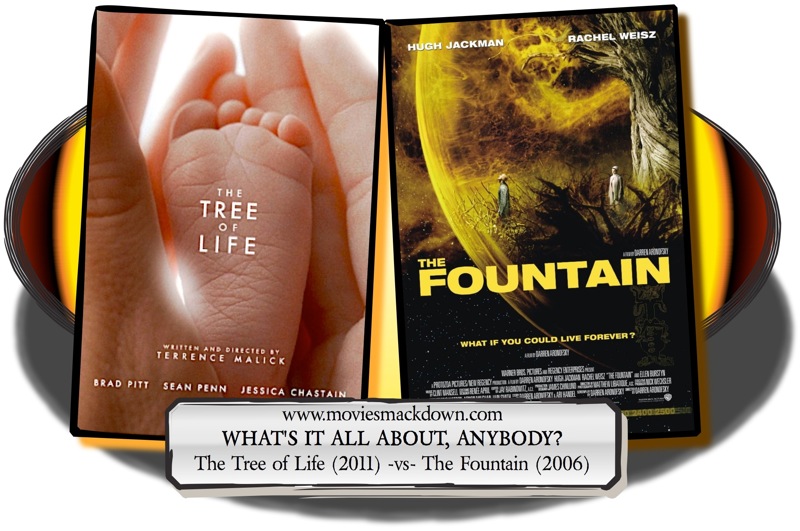
 The Smackdown
The Smackdown
Israel’s Mossad is one of the world’s most effective secret intelligence services. Its agents prowl the globe tracking any potential threat to their country, and keep their hands firmly on their triggers should it become necessary to kill in the name of national security. It’s an organization composed of smart and deadly secret operatives ready to give their lives to protect their nation. At least that’s what Mossad would have us believe.
Hollywood takes a more skeptical view. Are Israeli agents really so bloodless, calculating and effective? Possibly not. In both The Debt and Steven Spielberg’s expensive 2005 drama Munich, a Mossad team struggles with the practical and moral aspects of avenging an injustice done to their country and its people. Blood is spilled and punishments are delivered, but ugly complications ensue.
Their mission, then — should they choose to accept it — is to win this Smackdown. This will take place at a website known only to our Smackfans and a few thousand Internet trollers here and there. Should we be asked directly, we will disavow any knowledge of this Smackdown’s existence. Both movies have been given their assignment briefs; this review will self-delete in ten seconds… nine… eight…

The Challenger
The Debt is a remake of a celebrated film of the same name made by Israeli talent. Its root story is set in 1965 and concerns a three-person team of Mossad operatives tasked with kidnapping a Nazi concentration camp doctor and bringing him to justice in Israel. Complicating this greatly is that the doctor now lives and works in communist East Germany, which is no friend to Israel or any other state with ties to the west. The three agents (Jessica Chastain, Sam Worthington and Marton Csokas) hatch a plan to grab the bad doctor and spirit him away by metro. The idea’s a good one but the execution fails, leaving them with an unwanted roommate in their borrowed apartment.
As a prisoner, the frighteningly intelligent doctor (Jesper Christensen) starts to play mind games with Rachel (Chastain) and David (Worthington), the two weaker members of the crew, and they begin to doubt themselves and make mistakes. Because of one of these errors, the doctor gets a chance to escape his confinement on Rachel’s watch. This leads to a violent confrontation, the ramifications of which are not made completely clear until the film’s third act.
The other part of the story takes place in Tel Aviv 32 years later. Given the fate of the doctor, the three agents have been national heroes for decades, and an older Rachel (Helen Mirren) is the guest of honor at a book release party honoring her journalist daughter, who has written an account of the role mom played in the assignment. But was it really so heroic? David returns to Israel from many years in exile with a revelation about the mission, opening old wounds about what really transpired when the doctor tried to escape. Without giving away any of the film’s twists and developments, suffice it to say that Rachel is forced to come out of retirement and clean up the her team’s past oversights, hopefully closing the lid on the mission forever.

The Defending Champion
Munich begins with the 1972 kidnapping and murder of a band of Israeli Olympians during the summer Games in the title city, then shifts to the aftermath of that horrific event, where the bulk of the movie takes place. The Israeli government is determined to mete out Biblical eye-for-an-eye justice by exterminating the perpetrators, a splinter group of Palestinian separatists called Black September, and the accomplices who aided them. Young Mossad operative Avner Kaufman (Eric Bana, in a career-shaping lead role) gets the assignment, and he’s teamed with a small crew possessing a range of special skills.
The group goes about patiently tracking down the bad guys in various corners of Europe and the Middle East. The first few killings are executed clumsily by the not-quite-ready operatives, and the trail of their adversaries grows cold. Luckily for them, they make the acquaintance of a resourceful and helpful French informant who leads them much of the way to the remaining targets. Now hardened by their work, they quickly acclimate and become quite good at assassination. The body count rises, unfortunately on both sides.
At the end, justice is roughly served… but at what cost? Avner is increasingly troubled by the morality of his actions and the sacrifices made to achieve Israel’s goals. The once fierce and dedicated young soldier retires to carve out a more peaceful life in America with his family. He has become a haunted man wanting nothing to do with murderous revenge or secret operations.
The Scorecard
Both films are well crafted productions made by heavyweight filmmakers. The man in Munich’s director’s chair is Steven Spielberg, who with the assistance of screenwriters Tony Kushner and Eric Roth tones down his usual blockbuster approach to focus on inner struggle and morality. This is a gutsy and commendable move. Still, this being a Spielberg movie, there are several eye-poppingly large-scale set pieces, such as when the team, after waiting for an innocent child to clear the area, blows up an apartment building in an attempt to kill the one bad guy inside. For the most part, though, Munich attempts to be an introspective and brooding drama about the nature of revenge and killing in the name of justice.
The creators of The Debt – veteran director John Madden and writers Matthew Vaughn, Jane Goldman and Peter Straughan, and the original Israeli writers Assaf Berstein and Ido Rosenblum – eschew the pricey set pieces for a more straightforward, tighter and more claustrophobic story. The key action in the 1965 sequences takes place in that East Berlin apartment-turned-prison. What’s admirable about the movie is that it doesn’t feel toned down because of this. Impressively, it also manages to blend elements outside of the spy/suspense genre very effectively into the mix. There’s plenty of drama, but also a sex/love triangle among the three leads and a suspenseful, unpredictable kidnapping-gone-wrong sequence. Munich, by contrast, focuses more narrowly on the dramatic aspects of its story and the internal psychological turmoil of its main character.
The Decision
Munich aspires to be a thought-provoking drama, and although it’s a quality film it never quite reaches that goal. The craft of the movie is certainly impressive as are those set pieces, but the exploration of the central theme is rather superficial. Avner feels bad and looks downcast about what he’s doing; we don’t otherwise get much of an impression as to what it’s doing to him, and we don’t leave the theater or turn off the DVD player thinking about it much. The Debt accomplishes its mission more thoroughly. Although it could have gone the easy route by presenting a simple espionage thriller, it has the audacity to chuck in other elements and blend them expertly to create a very compelling, multi-dimensional story. The twists are fresh and surprising, holding suspense right up until the end credits. What really happened when the doctor broke free, and what are our heroes going to do about it? We’re invested in these characters and the mystery, and it’s riveting to find out the answers.
With the Smackdown missions complete and the agents debriefed, only one crew can be honored by a grateful movie-going public. Despite the heroics of Munich, the team with the medal pinned to its chest is The Debt.
Featured SmashUp!
Contagion -vs- Outbreak “Microbes from Hell”
httpvh://youtu.be/EQX7KsrXqUY




Leave a Reply